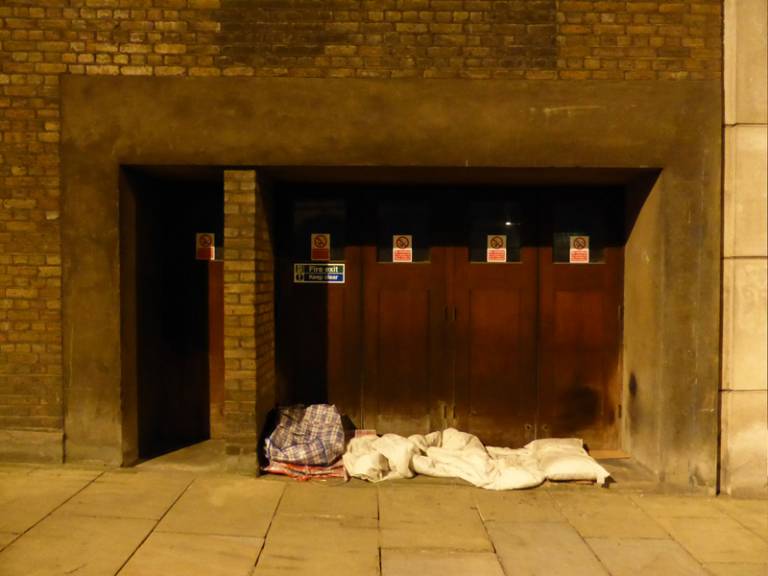End of life support is lacking for homeless people
4 July 2017
A new study found that homeless people who are terminally ill are falling between cracks in services, and not able to access the same level of support as others.

Researchers from the UCL Marie Curie Palliative Care Research Department, Pathway, St Mungo's and Coordinate My Care worked with homeless people and care professionals and found that many homeless people who may be approaching the end of their lives are living in homeless hostels.
The study, published in Palliative Medicine, is the largest of its kind and the first to describe the lack of appropriate services for homeless people in the UK, from the perspectives of homeless people and those supporting them.
It showed that hostel staff often end up caring for some of the sickest homeless people, despite not having the palliative care training or support to do so. As a result, huge burdens are placed on hostel staff who do their best to manage with minimal support and very limited resources.
"Hostels provide temporary accommodation. They are not designed to meet the needs of seriously or terminally ill residents. Hostel staff often struggle to secure additional support from social services or palliative care services for their residents who have complex problems," said lead author Dr Caroline Shulman (Pathway and UCL Marie Curie Palliative Care Research Department).
Many homeless people die young from conditions such as advanced liver disease, often complicated by mental health problems or drug and alcohol issues, or both. There are differences in the type and amount of support available for this group across London. While the researchers did identify some innovative attempts to deal with the issue, they found that overall, homeless people with advanced ill health rarely receive adequate care and support in the community. This results in repeated unplanned and emergency hospital admissions in the last months, weeks or days of life, which can be very distressing.
The research calls for urgent action to improve collaboration between health, housing, social services and the voluntary sector, with extra support for hostel staff. It also makes recommendations for a specialist health hostel, with staff that not only understand the complex needs of homeless people but can also offer adequate 24-hour support for people with serious illnesses, including those who are dying.
The research was funded by the Oak Foundation and supported by Marie Curie, Pathway and Coordinate My Care.
Links
- Research paper in Palliative Medicine
- UCL Marie Curie Palliative Care Research Department
- Marie Curie
- Pathway
Image
- Source: Duncan C on Flickr
Source
Media contact
Chris Lane
Tel: +44 (0)20 7679 9222
Email: chris.lane [at] ucl.ac.uk
 Close
Close

